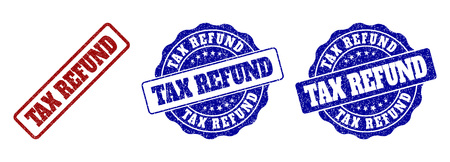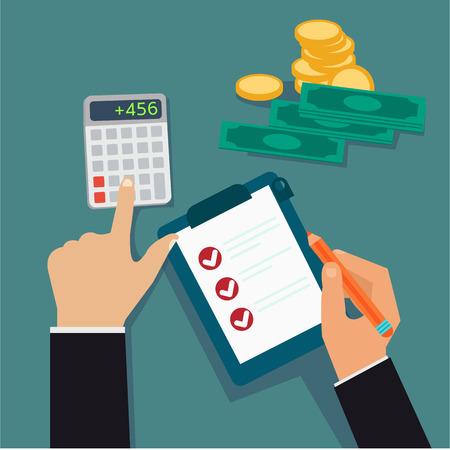What is Capital Gains Tax and Who Pays It?
Capital Gains Tax (CGT) is a tax you pay in the UK on the profit when you sell or dispose of certain assets that have increased in value. Its important to note that CGT is charged only on the gain you make, not the total amount of money you receive. This tax typically applies to individuals, trustees, and personal representatives of deceased persons, but it doesnt affect limited companies, as they pay Corporation Tax instead. Assets commonly subject to CGT include property that isnt your main home, shares (that arent in an ISA or PEP), business assets, and valuable possessions worth over £6,000 such as art or jewellery. Understanding who pays CGT and what it covers is the first step towards effectively managing your annual exemption and making the most of available allowances.
2. How the Annual CGT Allowance Works
If you’re selling shares, a second property, or valuable personal possessions, understanding the annual Capital Gains Tax (CGT) allowance is essential to keep more money in your pocket. Each tax year, HMRC sets an annual CGT exemption – also known as the Annual Exempt Amount – which allows you to earn a certain amount in gains before any tax kicks in. Here’s what you need to know about how this works under current UK rules.
Breaking Down the Allowance
The annual CGT allowance is reviewed and updated by the government every tax year (which runs from 6 April to 5 April the following year). For the 2024/25 tax year, the allowance stands at £3,000 for individuals and £1,500 for most trusts. This means you only pay CGT on gains above these thresholds.
| Tax Year | Individual Allowance | Trust Allowance |
|---|---|---|
| 2022/23 | £12,300 | £6,150 |
| 2023/24 | £6,000 | £3,000 |
| 2024/25 | £3,000 | £1,500 |
How Much Can You Earn Tax-Free?
If your total gains in a tax year are below the allowance threshold, you won’t owe any CGT. It’s important to remember that this exemption applies across all your chargeable assets combined — not per asset or per transaction.
Recent Updates: The Shrinking Allowance
The government has steadily reduced the annual exempt amount in recent years, nearly halving it each time. This means it’s more important than ever to plan ahead and consider timing sales or transfers of assets to make best use of your tax-free limit. Keeping track of these changes can help you make smarter choices when it comes to selling investments or property, maximising your take-home returns.

3. Making the Most of Your CGT Allowance
Every UK taxpayer has an annual Capital Gains Tax (CGT) allowance, also known as the Annual Exempt Amount. Making sure you use this exemption each tax year can help you legally reduce or even eliminate your CGT bill. Here are some everyday tips and UK-specific strategies to ensure you’re not missing out on your annual exemption.
Split Sales Across Tax Years
If you’re planning to sell assets that have gained in value, consider spreading sales over two tax years. By doing this, you can use your annual exemption twice—once before 5 April and once after. This is particularly handy for shares or investments where you control the timing of the sale.
Utilise Spousal Transfers
Assets can usually be transferred between spouses or civil partners without incurring CGT. By sharing assets with your partner, both of you can use your individual allowances, effectively doubling the tax-free gains you can realise as a couple. It’s a simple but highly effective way for families to save money together.
Offset Gains with Losses
If you’ve made losses on other investments during the same tax year, these can be used to offset your gains before applying your allowance. Make sure to keep track of any loss-making investments and report them to HMRC so they’re available to reduce your future CGT liability.
Make Use of ISAs and Pensions
Investing through an Individual Savings Account (ISA) or pension wrapper means any gains are free from CGT entirely. Before selling assets outside these wrappers, check whether you can transfer funds into an ISA or top up your pension contributions to shield more of your returns from tax.
Keep Good Records
The key to making the most of your CGT allowance is good record-keeping. Track purchase dates, sale dates, acquisition costs and associated fees for all your taxable investments. When it comes time to fill out your self-assessment or speak with an adviser, having accurate records ensures you claim every penny of your exemption and avoid unnecessary tax.
4. Splitting Assets and Using Joint Allowances
One of the most effective ways to maximise your annual Capital Gains Tax (CGT) exemption in the UK is by making use of both yours and your spouse’s or civil partner’s allowances. Every individual is entitled to their own CGT annual exempt amount, so if you’re married or in a civil partnership, you can potentially double the tax-free gains you make each year by splitting ownership of assets between you.
How Spousal Transfers Work
The transfer of assets between spouses or civil partners is generally exempt from CGT, meaning you can move assets to your partner without triggering a taxable gain. This offers a valuable opportunity to balance out ownership before selling, ensuring that both exemptions are used efficiently. For example, if you jointly own an investment property, you can adjust the share of ownership so both parties’ allowances are fully utilised when the asset is sold.
Illustrative Example: Maximising Joint Allowances
| Scenario | CGT Exempt Amount Used | Potential Tax Saving |
|---|---|---|
| One person owns asset | £3,000 (2024/25) | Lower |
| Asset split equally between spouses/civil partners | £6,000 (combined 2 x £3,000) | Higher – both allowances used |
Planning Tips for Couples
- Review Asset Ownership: Before selling, consider whether it makes sense to transfer part or all of the asset to your spouse or civil partner to maximise exemptions.
- Document Transfers Properly: Make sure any transfers are properly documented and that beneficial ownership is clear for HMRC purposes.
- Avoid ‘Bed and Breakfasting’: If selling shares or funds, be aware of anti-avoidance rules that may impact how gains are calculated when assets are repurchased shortly after sale.
Key Takeaway:
By strategically splitting assets and utilising joint allowances between spouses or civil partners, you can effectively double your annual CGT exemption—helping keep more money in your pocket when disposing of investments or property.
5. Timing Your Sales for Maximum Tax Efficiency
When it comes to capital gains tax (CGT) in the UK, the timing of your asset sales—whether property, shares, or other investments—can have a significant impact on how much tax you ultimately pay. By planning your transactions carefully and making strategic decisions about when to sell, you can make the most of your annual CGT allowance and potentially avoid unnecessary tax bills.
Spread Gains Across Tax Years
If you’re considering selling multiple assets that have increased in value, it’s worth thinking about spreading these disposals over more than one tax year. Since the CGT allowance resets each 6 April, staggering sales can help ensure that you fully use your exemption for each year, rather than exceeding it and paying tax unnecessarily.
Coordinate With Other Income
Your CGT liability is affected by your overall income, as gains are added on top when calculating which rate applies. If you expect your income to be lower in a particular year—perhaps due to a career break or retirement—it may be smart to schedule larger disposals then, potentially benefiting from lower tax rates.
Watch Out for Deadlines
Remember that the UK tax year runs from 6 April to 5 April. Make sure any planned sales fall within your intended timeframe so you don’t miss out on using your current year’s allowance. If you leave it too late, even by a day, you could end up paying more tax than necessary.
Avoiding “Bed and Breakfasting” Pitfalls
If you’re thinking of selling shares to crystallise gains and then repurchasing them quickly, be aware of the “bed and breakfasting” rules. In the UK, shares bought back within 30 days are matched with those sold, meaning you might not achieve the desired tax outcome. Consider alternatives like using an ISA or SIPP for reinvestment if appropriate.
By keeping an eye on timing and aligning your sales with both the tax calendar and your personal circumstances, you can ensure you’re using your annual exemption as effectively as possible—helping keep more of your hard-earned gains in your pocket.
6. Simple Record-Keeping for Peace of Mind
Keeping on top of your capital gains records might not sound thrilling, but it’s one of the smartest ways to make tax time a breeze and ensure you never pay more than you need to. With the UK’s annual Capital Gains Tax (CGT) allowance in mind, a bit of simple organisation goes a long way towards maximising your exemption—and avoiding last-minute panic.
Easy and Practical Ways to Stay Organised
First things first: always save all paperwork related to any asset you buy or sell—this includes property, shares, crypto, or even valuable antiques. HMRC recommends keeping these records for at least six years. Setting up a dedicated folder (digital or paper) for each tax year is a straightforward solution. Every time you buy or sell an asset, pop the purchase and sale documents into this folder straight away.
Digital Tools Make Life Simpler
If you’re more tech-savvy, plenty of apps and online tools can help track your investments and calculate potential gains as you go. Even a simple spreadsheet can do the trick—just list the date, type of asset, amount paid, amount received when sold, and any associated costs like legal fees or broker charges. This way, when it’s time to complete your Self Assessment, everything is in one place and easy to find.
Stay Stress-Free at Tax Time
By maintaining clear records throughout the year, you’ll avoid the stress of scrambling for missing paperwork come April. Plus, if HMRC ever asks for evidence, you’ll be able to provide it without worry. Ultimately, good record-keeping means you can confidently claim your CGT allowance every year—and keep more money in your pocket for the things that matter most.


